
Choosing the right flooring for a commercial space can feel overwhelming, can’t it? I’ve been there myself, pondering over countless options.
The best material for commercial flooring often depends on the specific needs, but SPC (Stone Plastic Composite) flooring stands out for its durability, ease of maintenance, and cost-effectiveness.
Let’s chat about what makes a flooring material truly suitable for commercial use.
What is the best type of flooring for commercial use?
When selecting flooring for a commercial area, durability and safety are paramount.
SPC flooring is considered one of the best options due to its resilience, water resistance, and ability to withstand heavy foot traffic.
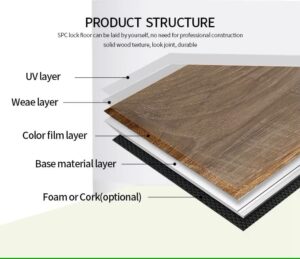
I recall a client who owned a bustling café. He needed a floor that could handle spills, constant movement, and still look inviting. We settled on SPC flooring, and it transformed his space. The floors stood up to the daily grind without a scratch.
Why SPC Flooring Excels in Commercial Settings
SPC flooring isn’t just tough; it’s designed for the demands of commercial environments.
- Durability: It resists dents and scratches, perfect for areas with heavy equipment or foot traffic.
- Water Resistance: Ideal for places prone to spills, like restaurants or retail stores.
- Easy Maintenance: A simple sweep and mop keep it looking new, saving time and money.
- Aesthetic Variety: Comes in various designs to match any brand or decor.
Imagine a retail store where the floor complements the products, creating an inviting atmosphere that customers love. That’s the power of choosing the right flooring.
Is SPC flooring good for commercial use?
You might wonder if SPC flooring truly holds up in commercial settings.
Yes, SPC flooring is excellent for commercial use due to its strength, stability, and low maintenance requirements.
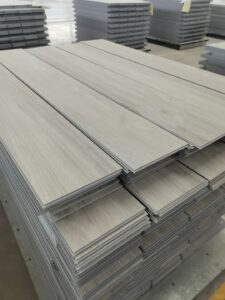
A friend of mine runs an office space, and after switching to SPC flooring, she noticed not only an improvement in the look but also in employee satisfaction. The floors felt comfortable underfoot, and the noise reduction was a pleasant surprise.
Benefits of SPC Flooring in Commercial Spaces
- Comfort: The rigid core provides support, reducing fatigue for those on their feet all day.
- Noise Reduction: Helps create a quieter environment, enhancing productivity.
- Cost-Effective: Lower upfront costs compared to hardwood, with long-term savings on maintenance.
- Environmental Friendly: Many SPC options are eco-friendly, aligning with sustainable business practices.
In commercial settings where first impressions matter, SPC flooring offers both function and style without breaking the bank.
What kind of flooring is used in commercial buildings?
Commercial buildings require flooring that balances practicality with aesthetics.
Common flooring types in commercial buildings include SPC flooring, ceramic tiles, and commercial-grade carpets, each chosen based on the specific needs of the space.
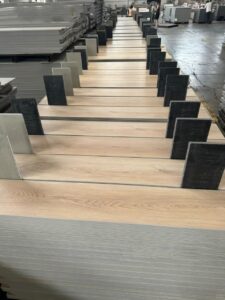
I’ve worked with various businesses, from retail stores to office complexes. Each had unique needs, but SPC flooring often emerged as a versatile solution.
Comparing Commercial Flooring Options
| Flooring Type | Advantages | Considerations |
|---|---|---|
| SPC Flooring | Durable, water-resistant, easy to install | Limited softness compared to carpet |
| Ceramic Tiles | Long-lasting, easy to clean | Can be slippery, harder underfoot |
| Commercial Carpets | Comfortable, noise-reducing | Requires more maintenance, stains easily |
| Hardwood Flooring | Aesthetic appeal, durable | Higher cost, susceptible to moisture damage |
Each option has its place, but SPC flooring offers a balanced mix of durability, aesthetics, and affordability that suits many commercial applications.
What is the best flooring for a manufacturing facility?
Manufacturing facilities have unique challenges, like heavy machinery and constant movement.
For manufacturing facilities, the best flooring is one that can withstand heavy loads, such as industrial-grade SPC flooring or epoxy-coated concrete floors.

I visited a factory floor once where the wrong flooring choice led to frequent repairs and downtime. Switching to a sturdier material made all the difference.
Flooring Needs in Manufacturing
- Load-Bearing Capacity: Must support heavy equipment without cracking.
- Chemical Resistance: Should withstand spills of oils and chemicals.
- Safety Features: Slip-resistant surfaces to protect workers.
- Ease of Maintenance: Minimal downtime for cleaning and repairs.
Industrial-grade SPC flooring offers these benefits, providing a reliable foundation for manufacturing operations.
What is commercial grade flooring?
The term might sound fancy, but what does it really mean?
Commercial grade flooring refers to flooring materials designed to meet the higher durability and safety standards required in commercial environments.
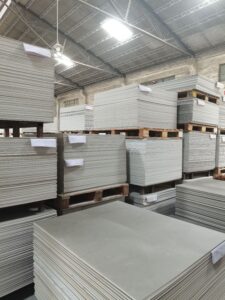
Think of it as the difference between a family car and a commercial truck. Both are vehicles, but they’re built for different demands.
Characteristics of Commercial Grade Flooring
- Enhanced Durability: Thicker wear layers and stronger cores.
- Compliance with Regulations: Meets specific fire, slip, and health codes.
- Design Versatility: Available in styles that suit professional settings.
- Long-Term Value: Engineered for longevity, reducing replacement costs.
Choosing commercial grade flooring is about investing in a solution that supports your business’s daily operations without compromise.
What is the strongest material for a floor?
Strength is a critical factor, especially in high-impact areas.
Concrete is often considered the strongest flooring material, but SPC flooring offers a combination of strength and versatility suitable for many commercial needs.
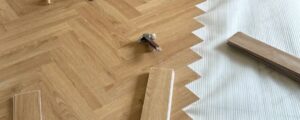
In spaces where aesthetics also matter, SPC provides a strong surface without sacrificing design.
Balancing Strength and Functionality
- Concrete: Unmatched strength, ideal for industrial use but lacks aesthetic appeal.
- SPC Flooring: Strong enough for most commercial uses, with added benefits of design flexibility.
- Tile and Stone: Durable but may require more maintenance and can be costly.
Selecting the strongest material involves assessing not just raw strength but how it fits into the overall function and look of your space.
Conclusion
Choosing the best material for commercial flooring is about matching the right features to your specific needs. Let’s find the perfect fit together.


